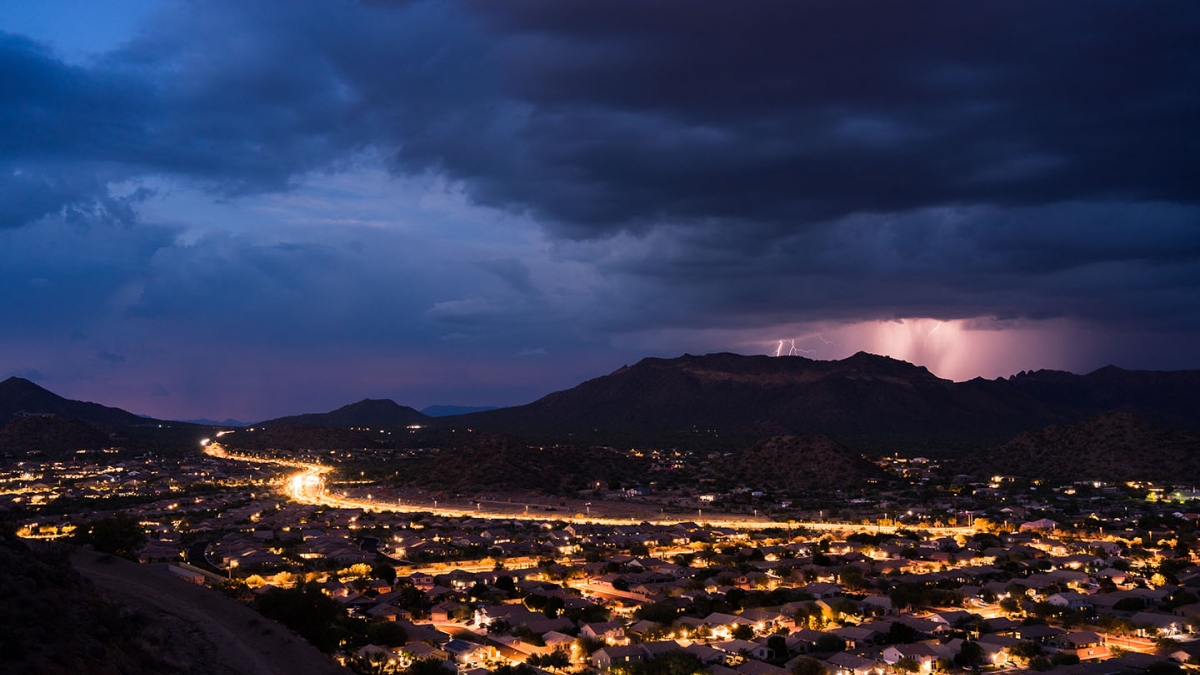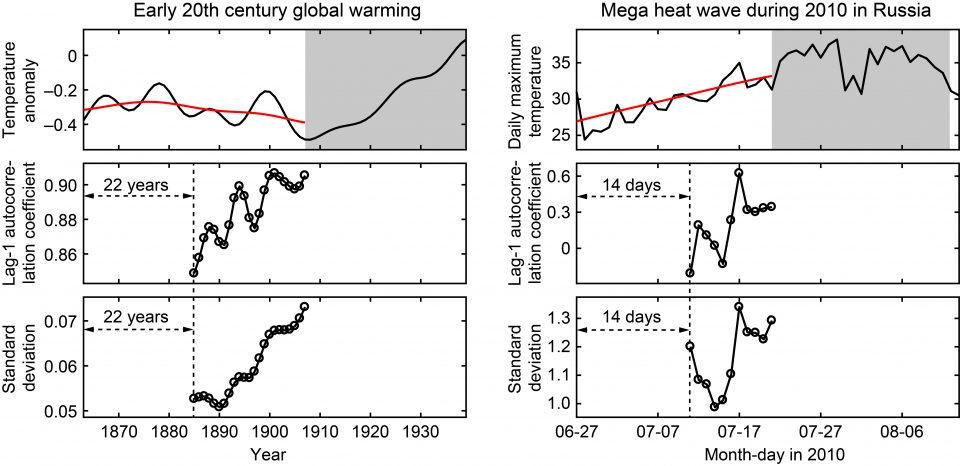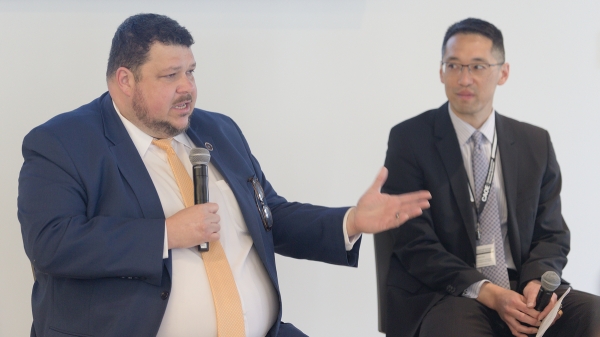Data analytics can predict global warming trends, heat waves
3 days of heat variances, compared to 30-year record, can predict an extreme weather event

New research from Arizona State University and Stanford University is augmenting meteorological studies that predict global warming trends and heat waves, adding human-originated factors into the equation.
The process quantifies the changing statistics of temperature evolution before global warming in the early 20th century and recent heat wave events to serve as the early warning signals for potential catastrophic changes. In addition, the study illustrates the contrast between urban and rural early warning signals for extreme heat waves.
Tracking the pre-event signatures, or tipping points, of the increasing frequency and intensity of heat extremes will support the development of countermeasures to restore climate system resilience.
“Many studies have identified such changes in climate systems, like the sudden end of glacial period,” said Chenghao Wang, a former ASU research scientist now at the Department of Earth System Science at Stanford University. “These qualitative changes usually have early-warning signals several thousand years before them.”

Early warning signals as increasing autocorrelation coefficient and standard deviation prior to the early 20th century global warming (left) and mega heat wave during 2010 in Russia (right).
“We detected similar signals in events much shorter than previous studies,” Chenghao Wang said. “We found early-warning signals also exist before global warming and heat waves on the time scale of years and days.”
In addition to global historical temperature data, the team tracks current temperature variances from airport weather stations. If it’s abnormally hot, compared to 30 years of record, for at least three consecutive days, it’s considered a heat wave.
“This method isn’t just applicable for predicting extreme weather events in the next few days or weeks," said Zhihua Wang, an ASU environmental and water research engineering associate professor. “It observes human-induced variabilities and will support prediction over the next decades or even century.”
Zhihua also serves as co-director of climate systems research at ASU's National Center of Excellence on Smart Materials for Urban Climate and Energy.
The emergence of early-warning signals before heat waves provides new insights into the underlying mechanisms, such as possible feedback via land-atmosphere interactions. In particular, given the increasing frequency and intensity of heat extremes, the results will facilitate the design of countermeasures to reserve the tipping and restore the resilience of climate systems.
According to Zhihua Wang, this method creates a “completely new frontier” for evaluating how things like global energy consumption and, conversely, the introduction of urban green infrastructure, are affecting climate change.
“We’re not replacing existing evaluation tools,” he said. “The data is already there. It’s enabling us to gauge what actions are having an impact.”
Based on the study results, researchers surmise that urban greening, or the use of public landscaping and forestry projects, along with adequate irrigation, may promote reverse tipping.
In addition to Chenghao Wang and Zhihua Wang, the team included rising high school junior Linda Sun from Horace Greely High School in Chappaqua, New York.
The study, "Early-Warning Signals for Critical Temperature Transitions," was published July 15 in Geophysical Research Letters. The research was funded in part by a National Science Foundation Atmospheric and Geospace Sciences grant.
Top photo of Phoenix by Peiyuan Li/ASU.
More Science and technology

The science behind chronic stress
Stress comes in many shapes and sizes. There’s the everyday stress of preparing for a final exam or being stuck in traffic. And the more significant stress of losing a friend, family member,…

ASU planetary scientist to be inducted into the National Academy of Sciences
The National Academy of Sciences is inducting School of Earth and Space Exploration Director Meenakshi Wadhwa into the 2023 class of new members for her pioneering work in planetary sciences and…

Unlocking the potential of AI for homeland security
“Can we do what we're doing now cheaper, more efficiently, more effectively?” Adam Cox, director in the Office of Strategy and Policy at the Department of Homeland Security Science and Technology…